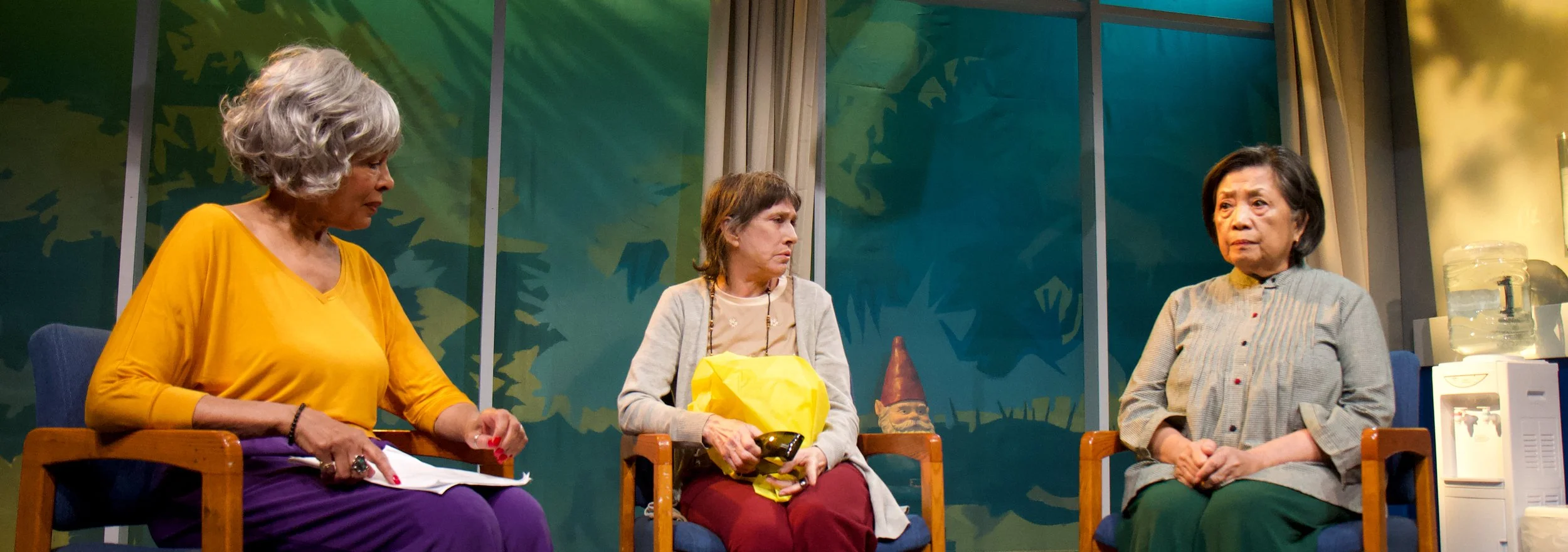Shakespeare’s rarely performed romance Cymbeline is a challenging play, for both actors and audience, but New York Classical Theatre’s new version is a walk in the park—literally. Director Louis Scheeder’s clear blocking and a judiciously edited script make for a delightful, accessible play. While the play’s Roman-era British lovers are constantly tossed between England, Italy, and Wales, the company leads the audience around what passes, in New York City, for a continent divided by water and mountains-the lakeside area of the north entrance. This is Shakespeare as a live road movie. It reveals the experience of the play’s weary travelers without ever making the audience weary. The plot of Cymbeline is romantic fluff with a serious and sinister undercurrent. The ineffectual, always dangerously underinformed King Cymbeline of Britain has a daughter, the princess Imogen, who has just married her lifetime best friend, the court-raised but not royally-born orphan Posthumus Leonatus. This disrupts the machinations of Imogen’s evil stepmother, who had been scheming for a match between the princess and her own stupid, crass son Cloten.
At the Queen’s instigation, Posthumus is banished to Italy, where he meets the scurrilous, stereotypically Italianate Roman courtier Iachimo, who bets Posthumus that he can make Imogen prove herself unfaithful. Posthumus’s acceptance of this bet sets into motion a plot that quickly veers toward tragedy. As the Queen and Cloten steer the royal family toward disaster, only Imogen and Posthumus can save them -- by reaffirming their belief in each other, and helping Cymbeline in spite of his abandonment of both of them.
The cohesive New York Classical company delivers many strong performances, and impressively, everyone’s speech is clearly audible in the noisy park. Most players do a great job of projecting without appearing to be shouting most of their lines. One scene, a secretive attempted seduction, is a rare exception.
As Imogen, Ginny Myers Lee gives a spirited performance that glues the episodic play together and gives the audience someone to root for. As the dangerously clever Iachimo and the dangerously stupid Cloten, respectively, Marc LeVasseur and Erik Gratton steal much of the show. LeVasseur’s haughty demeanor and Gratton’s farcical facial contortions are fantastic.
Once the going gets rough, Patrick Jones’s Posthumus exudes pathos, though he is less cholerically enraged at his apparent betrayal by Imogen than Michael Cerveris in Lincoln Center Theater’s production this past winter. As the Queen, Sherry Skinker plays the villainess with great subtlety. She is not the extreme, scary Machiavellian schemer that the character was as played, at Lincoln Center, by Phylicia Rashad, but a more convincing saboteur of her deceived husband’s kingdom.
Michael Marion's Cymbeline is tragically daft and often visibly bewildered, the unstable nucleus of this nuclear family who sends his children spiralling away. Finally, Michael Bartelle and Stephen Stout, as two forest-raised princes on the edge of adulthood, communicate both childlike wonder and the eloquence that eludes the clumsy Cloten.
Unlike LCT, New York Classical has intelligently cut the script down to a manageable length, removing extraneous characters, muddy political exposition, an entire family of archaic ghost figures, and—given that this is park theatre—all references to walls and furniture. Amelia Dombrowski’s costume design clearly delineates Romans from Britains—the former in haughty red capes, the latter decked with earth-tone Celtic plaid; and follows the English Renaissance theatrical convention of using contemporary costume—meaning, doublets and gowns—even in plays set in earlier periods.
To sum up, this Cymbeline is seamless, familial, and suspenseful, with more profound changes in the characters’ emotional lives than costume changes. Go see it, and let New York Classical take you on a truly magical journey.






